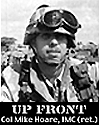USERS: Take these products and use them only if you are engaged in the day-to-day use of explosives in mining, construction or demolition, AND are a trained, experienced and supervised blaster responsible for multiple shot operations and are aware of the risks inherent in the use of explosives; otherwise LEAVE THEM ALONE OR RETURN THEM.
BUYERS, EMPLOYERS AND SUPERVISORS: Help the blasters do it right. Limit the use of these products as you are warned they should be limited. Make certain these warnings and instructions reach the actual users and are read and understood. Make it easy and necessary for the users to do it right. Provide the recommended and necessary tools, supplies and supervision.
But just what is it that they want you to know? Keep these things in mind when using explosives.
1. Users of explosives should be mature minded, physically fit, careful, reliable, able to read and write, and not be addicted to the use of intoxicants or narcotics. They should be aware of the destructive effects of explosives.
2. ALWAYS read and follow the warnings and instructions of the explosives manufacturer and suppliers. Carelessness, rough handling, and disregard for safety rules cause premature explosions, misfires, and in many cases serious accidents. Containers and boxes must never be broken, cracked or dented.
3. The responsibility of the preparation, placement, or firing of charges must not be divided. One individual should be responsible for the supervision of all phases of blasting operations.
4. ALWAYS retire to a safe place and WARN OTHERS before initiation of the round. Be sure the blast location is clear of others including fellow workers or the general public where applicable. In underground workings be sure that all entrances to the blast site are guarded against unauthorized entry.
5. ALWAYS protect your caps from unintended energy. Caps have to be sensitive to purposely supplied energy when you want to initiate them. This sensitivity means they can be initiated when energy is accidentally supplied. Some examples of sources of unintended initiating energy that users must guard against are: the impact of a falling rock on a cap; bullet impact; the impact of a tracked vehicle on an exposed cap; fire or flame; lightning or other electric discharge such as contact by electric wires; plasma radiation; sympathetic detonation from being in close proximity to another explosion.
6. ALWAYS select and use the explosive type, delay series and system that is appropriate for your conditions and intended use. The type of explosive selected for a task is usually determined by its detonation velocity
7. ALWAYS rotate stocks. Use the oldest units in your inventory first. Age affects the integrity of caps and other explosive devices.
8. ALWAYS transport and store detonators and all explosives in accordance with all Imperial, planetary and local laws.
9. ALWAYS look for misfires and handle suspected misfires as you are directed to by applicable Imperial and planetary laws and under the standards promulgated by the Institute of the Makers of Explosives statement of policy publications.
10. ALWAYS dispose of or destroy detonators and all explosives in accordance with approved methods. Consult the manufacturer or follow the Institute of Makers of Explosives statement of policy publications.
11. ALWAYS protect your caps, fuse or shock tube from rain, wet ground, extended exposure to high humidity and other similar conditions when assembling your firing train in the field. The entrance of moisture into your firing train may cause misfires.
12. ALWAYS remember that proper storage of explosives requires not only security from theft or loss, but it requires that the explosives products be kept from flame, heat and open lights such as smoking and matches, and heat such as stoves and radiators. It is especially important to keep caps from unintended initiating energy such as an open flame.
13. NEVER attach the initiating cap to the main explosive charge or trunkline until everything is ready to fire the round.
14. Before conducting a military demolition operation a thorough reconnaissance is conducted which supplies the following information: (1.) A situation sketch showing the relative location of objects to be destroyed, surrounding terrain features and the coordinates of the objects keyed to existing maps; (2.) Side view sketch of target with measurements of the dimensions of critical members; (3.) cross section sketch with dimensions of critical members; (4.) a bill of explosives, showing the kind and quantity required; (5.) sketch of all firing circuits; (6.) list of all equipment required for the demolition; (7.) list of unusual features of the site; (8.) estimate of the time and labor required to bypass the site compared to the time and labor required to destroy the site; (9.) and estimate and sketch of security details required; (10.) a written and signed copy of the demolition order.
15. When conducting a "hasty" demolition, which might be interrupted by the enemy, charges are prioritized for placement, with the most damaging being placed first. Each charge is primed as it is placed; for if all charges are placed and then primed, it is possible that enemy interference prior to the act of priming might stop the work before any damage is done.
16. When land mines, aerial bombs, and shells are used as demolition charges, special precautions must be taken because of flying steel fragments. For conducting calculations, the explosive weight of bombs is approximately half of their total weight.
There may be bold powdermen, and there are old powdermen, but there are not many old bold powdermen.



 Explosives are dangerous...
Explosives are dangerous...